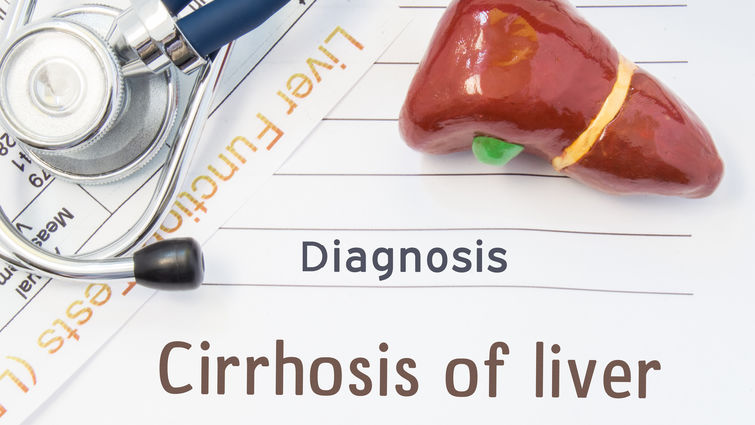
Approximately 1 in 200 people from ages 45 to 54 have cirrhosis, according to the National Institute of Diabetes and Digestive and Kidney Diseases. However, not only can it happen at any age, many patients never find out they have the condition until it is too late.
Cirrhosis is a condition where a patient’s liver is damaged beyond repair — the final pathway of chronic liver disease. There are several types of liver diseases, including alcoholic liver disease, non-alcoholic fatty liver disease, chronic viral Hepatitis B or C and autoimmune liver disease.
Michael L. Volk, MD, division head of Loma Linda University’s gastroenterology and hepatology department and liver specialist, says once these diseases have damaged the liver long enough, it can turn into cirrhosis and sometimes the patient will need a new liver.
“There are five major categories that put patients at risk for cirrhosis,” Volk says. “They include obesity, diabetes, past drug or alcohol use, being born in the Baby Boomer generation between 1945 and 1955, or having a blood transfusion before 1992.”
If you are not part of these high-risk groups but would still like to know the health of your liver, read Volk’s tips below:
- Yellowing of the eyes. When a patient’s eyes begin to turn yellow, it is called jaundice. It is caused by an excess amount of bilirubin — a yellow compound that aids in the process of clearing waste out of the body.
- Spider angioma. Volk says you can usually find spider angioma on top of someone’s chest. This condition is swollen blood vessels right beneath the surface of the skin that creates a red spot with reddish extensions — similar to a spider’s web.
- Elevated liver enzymes. If a patient’s blood work reveals elevated liver enzymes, it is a sure sign that there is trouble with their liver. A physician will use this as a chief indicator to understand the health of a patient’s liver.
More importantly, partnering with a physician is the best way to find out the accurate health of your liver. Loma Linda University Transplant Institute has specialists that can help test and guide you through all of your questions. You can schedule an appointment by calling 1-800-548-3790.
